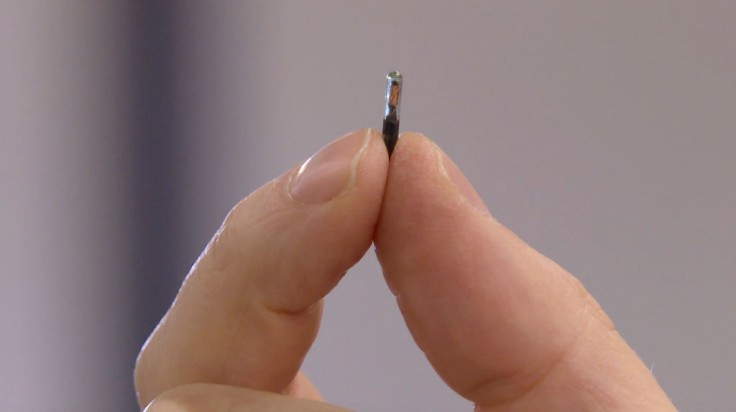
Several reports have stated the benefits and convenience of the COVID-19 vaccine passport microchip implant. However, since it uses NFC technology, it draws privacy concerns about tracking locations.
In addition to this, this chip will cost at least around $180 and as low as $100.
Can the COVID-19 Vaccine Passport Microchip Implant Track Your Location?
Privacy concerns about storing private information in such an easily accessible manner have been resolved by the Swedish creator of a COVID-19 vaccine passport microchip implant under the skin, according to Fox Business.
In terms of its size, the microchip implant of tech firm DSruptive Subdermals is about 2 millimeters by 16 millimeters and may be scanned to show immunization history.
Near-field communications (NFC), the same technology that enables contactless payments, is used in the implants to give them a broad range of applications.
DSruptive is a high-tech company that focuses on implanted microelectronics.
With competence in technology, business, service design, communications and medical aspects of subdermal implants, the company claims to have a long history in the microchip implant sector.
Managing director of DSruptive Subdermals Hannes Sjoblad told AFP that "we know that the world of connected devices, the Internet of Things as a lot of people call it, speaks the language of NFC [...] So when I have a chip in my hand it allows me to speak the language of all these devices and interact with them effortlessly," per Fox Business.
Moreover, another individual could use NFC tags to take the data, but they would need to use a smartphone and get it near enough to the implant to activate the chip and grab the data.
Meanwhile, Go Codes also explained that NFC asset tagging is based on the principle of radio-frequency identification. The system consists of a signal transmitter and a signal receiver.
NFC tags convey passive data but cannot process it. They may convey information by drawing electricity from readers, which is also used by Apple Pay.
In addition to NFC tags, these can also be used to track merchandise in the store. The device monitors the passage of items through the exit when used as an anti-theft solution in a brick-and-mortar retail establishment.
If it identifies a shoplifted item, it will sound an alert.
Despite the benefit that the technology used for microchip implants brings, it still raises privacy concerns for everyone.
In relation to this, Sjoblad clarified that the COVID-19 vaccine passport microchip implant is not capable of sending and receiving a person's location.
"They don't have a battery, they cannot transmit the signal by themselves, so they're basically asleep, they can never tell your location, they are only activated when you touch them with your smartphone," Sjoblad furthered.
COVID-19 Vaccine Microchip Implant Price
According to NPR, over 4,000 Swedes have chosen similar chip implants in the last several years, which may store a range of information such as business cards, public transportation cards and even automobile key fobs.
Furthermore, the chips, which are about the size of a grain of rice, are implanted into the skin slightly above the thumb with a syringe that has similarity to those that are used for vaccinations, as previously reported.
Additionally, the treatment will cost at least around $180 and as low as $100.
"A chip implant costs a hundred Euros ($113) if you want to buy the more advanced versions, and you can compare this with for example a health wearable that will cost perhaps twice that but at the same time a chip implant you can use for 20, 30, 40 years. Whereas a wearable you can only use for three, four years," Sjobal described.
Fortunately, this microchip implant is completely reversible, which means it can be taken out.
The managing director also stated that the COVID pass is the only example of a conceivable use, which will be a "thing for the winter of 2021-2022," per RTE.










